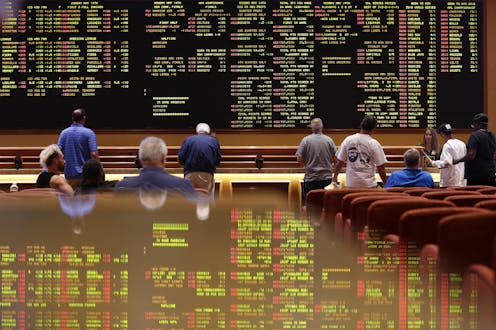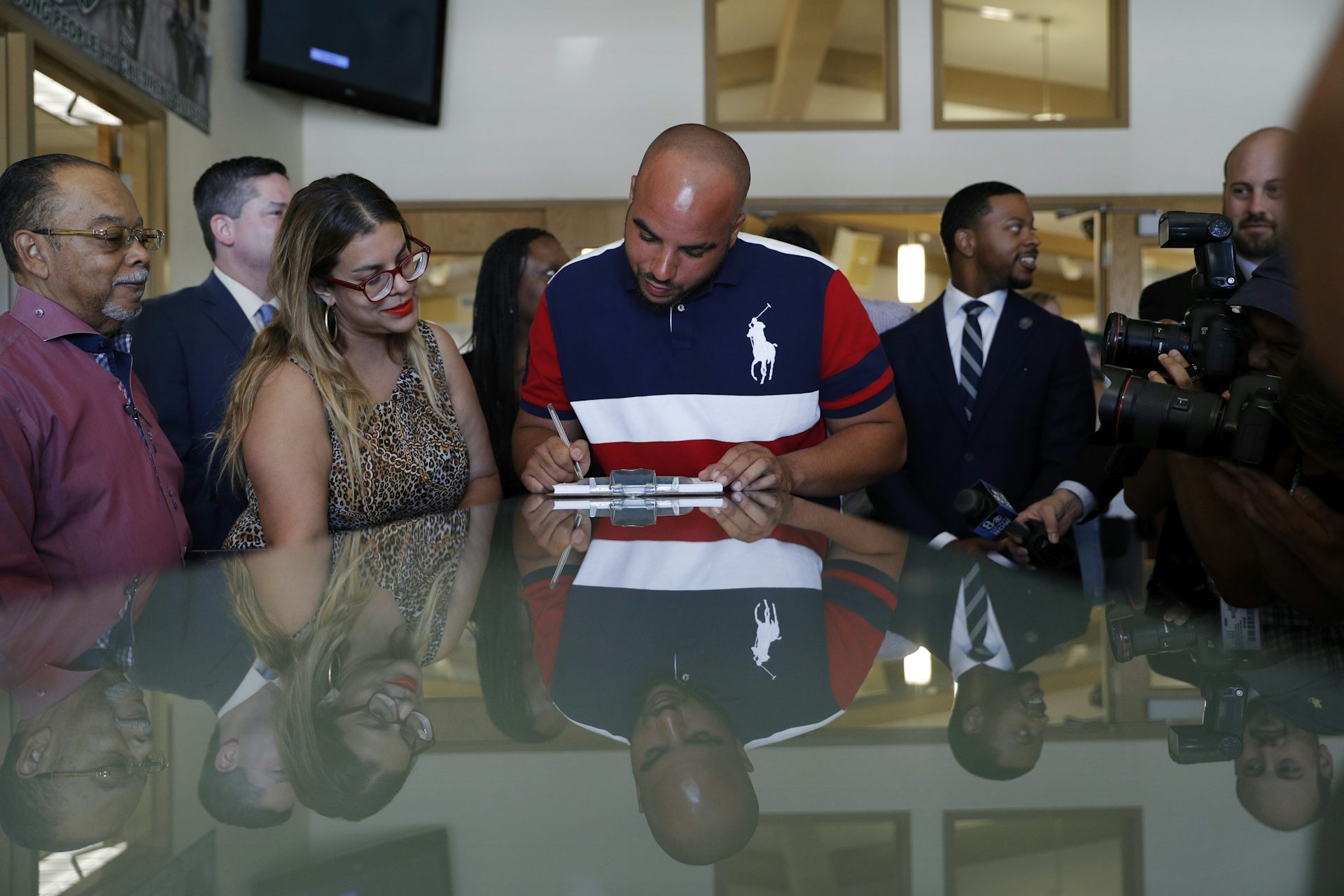Supreme Court delivers a home run for sports bettors – and now states need to scramble
With leagues lobbying for their share, a thriving illegal market that needs to be stifled, and bettors chomping at the bit, the headaches are just beginning.

On May 14, the United States Supreme Court invalidated the Professional and Amateur Sports Protection Act, a federal law that prohibited states, aside from a few exemptions like Nevada, from allowing sports betting operations.
In a victory for states’ rights, the court ruled that the law unconstitutionally interfered with states’ ability to implement their own legislation on the issue.
So now what? As someone who studies sports wagering and gambling law, I’ve been following the case closely. While the decision marks an end to years of legal action to challenge the federal law, it also now creates a host of issues for states that are considering sports betting legislation and regulation.
To legalize or not to legalize
First and foremost, it’s now on states to decide whether to legalize sports betting. Many, like Pennsylvania and New York, have preemptively introduced or passed legislation to do just that.
But for those that have already legalized sports betting or end up doing so in the coming months, there’s a lot of work to be done – and decisions to be made.
The states that do legalize sports betting will have to decide whether it will be operated by the state, like lotteries, or if private enterprises will be allowed to offer sports bets. If private businesses are permitted, states must consider whether sports betting will be limited to certain types, such as casinos and racetracks, or if online operators and smaller retailers will also be able to participate.
Then there are the types of wagers that will be permitted and prohibited. Does the legalization of sports betting allow for wagering on events that are related to professional sports, such as the NBA draft? Do esports count as a “sport” for wagering purposes? Will betting on events beyond sports be legalized, too? For example, in Nevada, you can’t bet on the outcome of elections, but you can bet on approved esports events and the NBA draft.
States will also need to determine whether live betting – also known as in-running, live-game or in-game betting – will be offered. This type of wager, which has become increasingly popular in Nevada, allows you to bet on certain aspects of the game as it unfolds. For example, at halftime of a game, you could bet on the outcome regardless of what happened in the first half.
There’s also the issue of how bettors will establish betting accounts and place their bets. Will they be able to do so through an app on their phones? Or must it be done in person at a licensed location?
Building a regulatory framework
Some elected officials think the federal government could play a role by building a regulatory template for states to follow. Before the decision, Congressman Frank Pallone of New Jersey had already introduced legislation to create one. However, Congress might not have the appetite to tackle the issue, given other priorities and the upcoming midterm elections.
Moreover, Nevada’s system could easily serve as a starting point for states from which to build. Since 1949, the state has been auditing sports books, resolving patron disputes, approving technology for use in sports books, and approving wagering options.
So far, little has been said about the benefit the federal government will receive from an expansion of sports wagering throughout the United States. The current tax code imposes a 0.25 percent federal tax on the total amount wagered on sports.
However, the sports leagues also want a cut of the bets – and have pushed for what they call an “integrity fee.” But it’s really just a share of all wagers made. This could prove detrimental to sports book operators, since sports betting, by its nature, is a relatively low-margin business – after all, they do have to pay out on winning wagers. If states aren’t careful, integrity fees, burdensome taxes, license fees and regulatory costs might push out suitable, experienced operators – and force patrons to remain in the illegal market.
These are just a snapshot of issues that states will have to grapple with, and a careful, cautious and informed approach must be undertaken. But in the long term, it will serve states and bettors well: A legal, regulated market is much better than the illegal, unaccountable system that’s been operating for years.
Jennifer Roberts works for UNLV International Center for Gaming Regulation, William S. Boyd School of Law, and S.J. Quinney College of Law, University of Utah. She owns her own boutique law firm, Roberts Gaming Law, Ltd., and is a Director of Nevada Esports Alliance, Futuro Academy charter school, and Clark County Bar Association.
Read These Next
The nation is missing millions of voters due to lack of rights for former felons
At least 20 million Americans have served time. Most of them can’t or don’t vote, and that may distort…
What decades of research reveal about involuntary substance use treatment – and why evidence points
Many cities are considering involuntary substance use treatment as a solution to drug use among the…
Failure of US-Iran talks was all-too predictable – but Trump could still have stuck with diplomacy o
Silence from the US side after a third round of indirect talks and frustration expressed by President…





